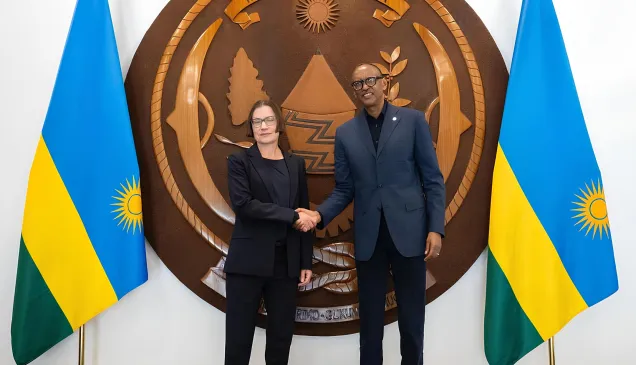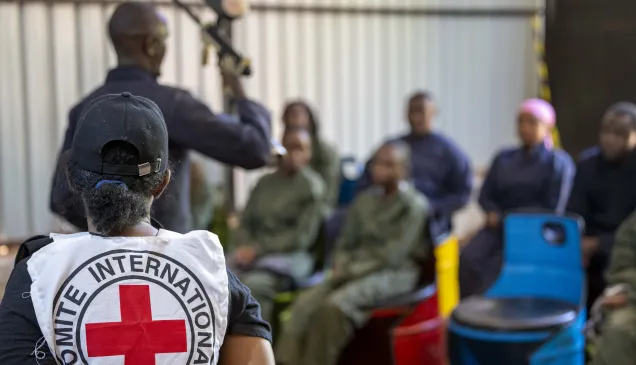Rwanda: Daily life in Rubavu prison
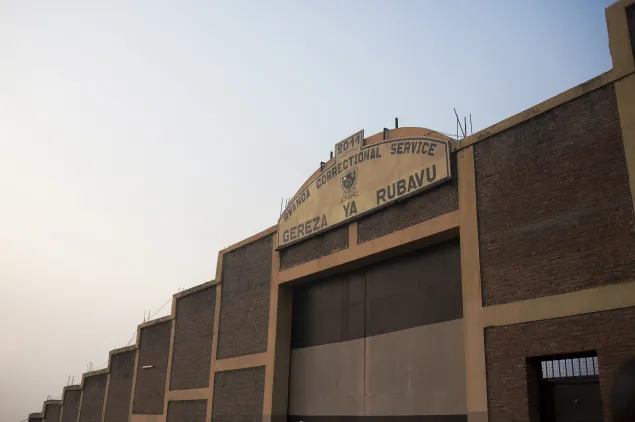
The front gate.
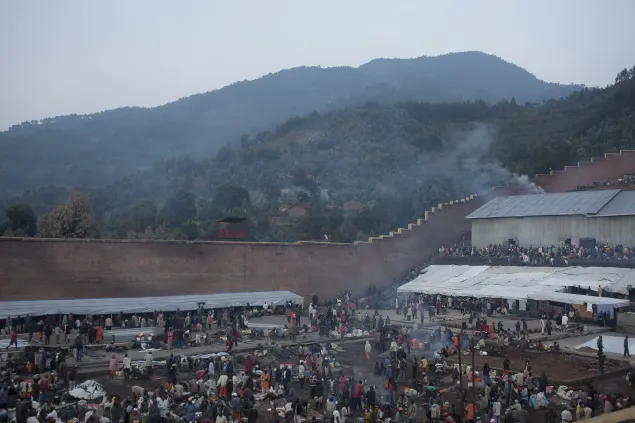
Rubavu Prison, Rwanda, 22 July 2014.
Rubavu prison has a unique internal arrangement, whereby inmates take on various roles to maintain a functioning community.
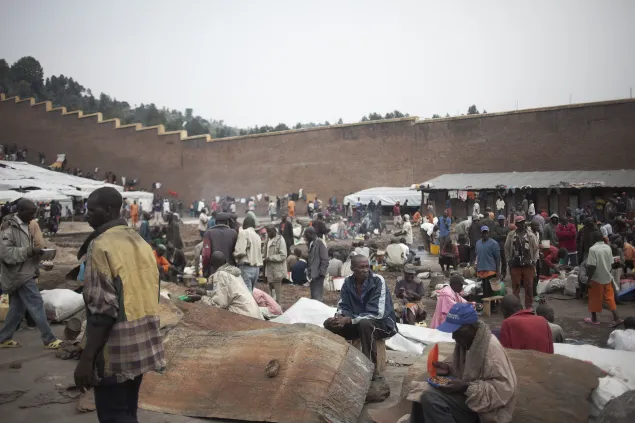
Rubavu Prison, Rwanda, 22 July 2014.
Some inmates work as cooks or security officers within the prison, while others are granted special privileges to work outside the facility, for example in agriculture.
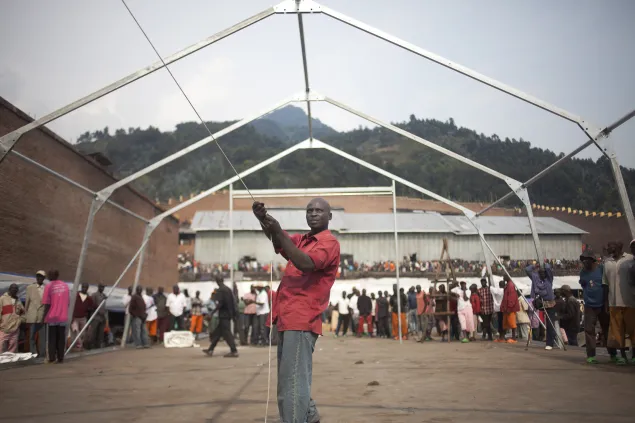
Rubavu Prison, Rwanda, 22 July 2014.
Under the guidance of ICRC engineer Hassan Kamugisha, inmates erect five tents that will serve as temporary shelter following a fire on 7 July 2014.
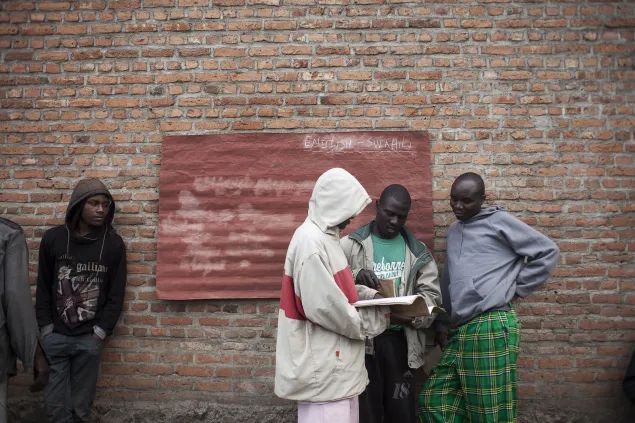
Rubavu Prison, Rwanda, 22 July 2014.
A school inside Rubavu prison. Though the prison’s schools are simple and lacking in resources, inmates often show up eager to learn whatever they can, in the hope of bettering themselves during their period of incarceration.
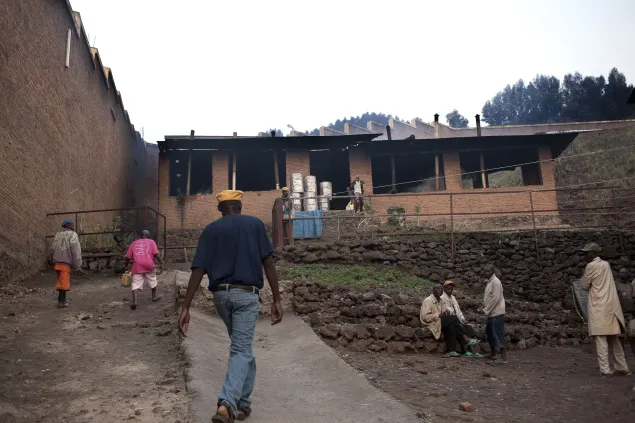
Rubavu Prison, Rwanda, 22 July 2014.
An inmate walks towards the kitchen.
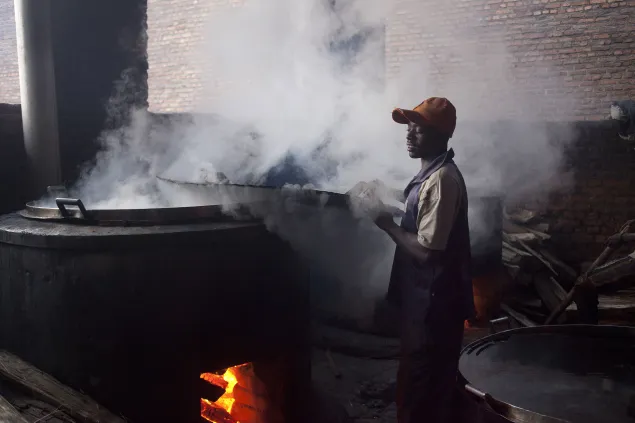
Rubavu Prison, Rwanda, 22 July 2014.
The kitchen, which is run by prisoners and fuelled by biogas. The biogas is produced by processing wastewater in containers located just outside the prison grounds.
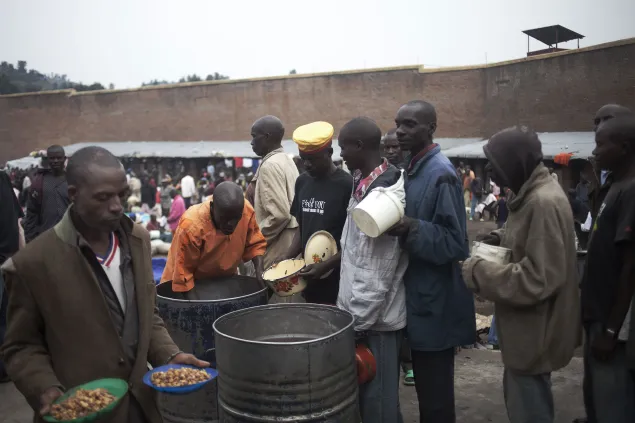
Rubavu Prison, Rwanda, 22 July 2014.
A food distribution point.
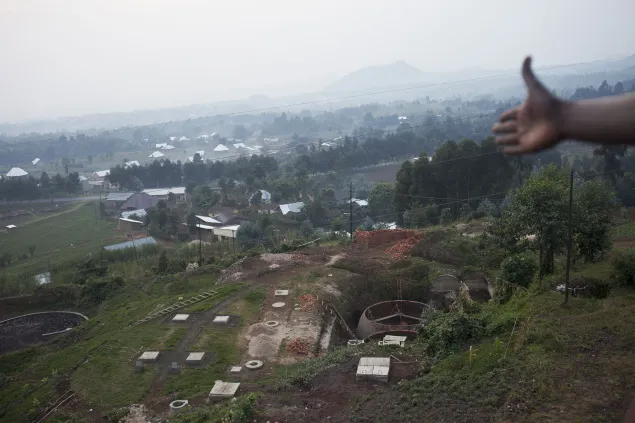
Rubavu Prison, Rwanda, 22 July 2014.
Hassan Kamugisha, an ICRC water and habitat engineer, points to the biogas system that he helped to set up just outside the prison. Wastewater is processed in large spherical brick structures and the gases produced are channelled back to the prison to fuel the kitchen.
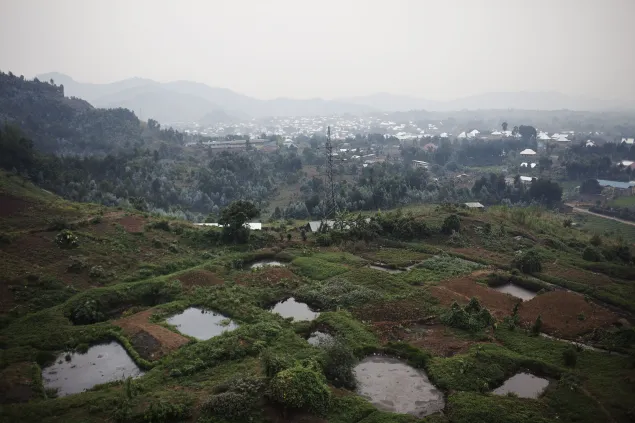
Rubavu Prison, Rwanda, 22 July 2014.
The solid waste that remains from the process of producing biogas is aged in these pools until it is ready for use as fertilizer in the fields of corn and beans that help to feed the inmates.
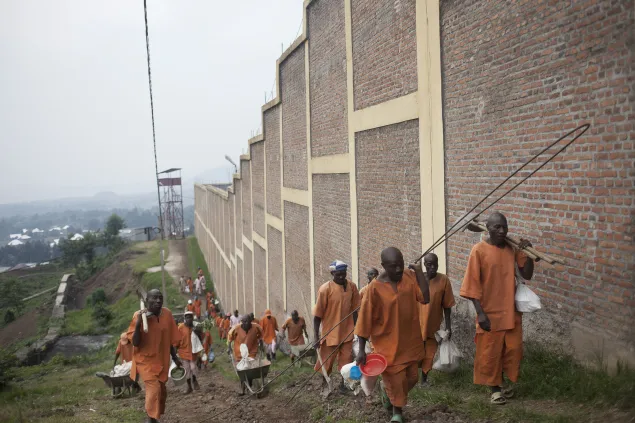
Rubavu Prison, Rwanda, 22 July 2014.
Prison inmates on their way back to the prison from a site just outside the grounds, where they are helping to further develop an ICRC-supported biogas system.
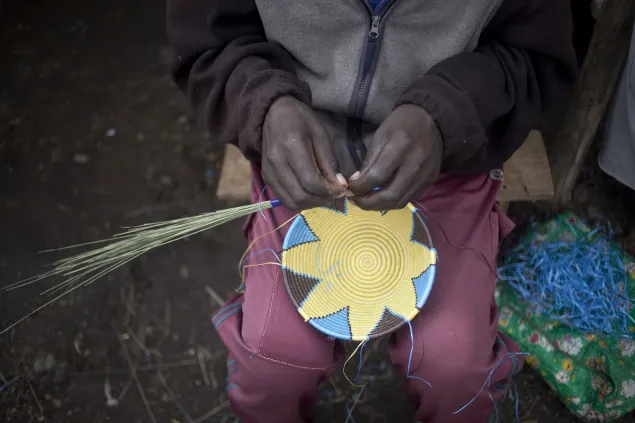
Rubavu Prison, Rwanda, 22 July 2014.
A man weaves baskets. Many inmates learn handicrafts like basket-weaving to help pass the time and to earn a little money. They receive 10 per cent of the proceeds, while the rest of the money is used to cover general costs at the prison.
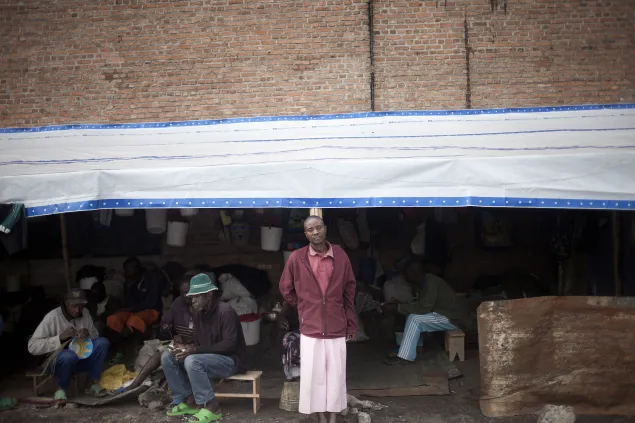
Rubavu Prison, Rwanda, 22 July 2014.
A man poses for a picture while his friends weave baskets.
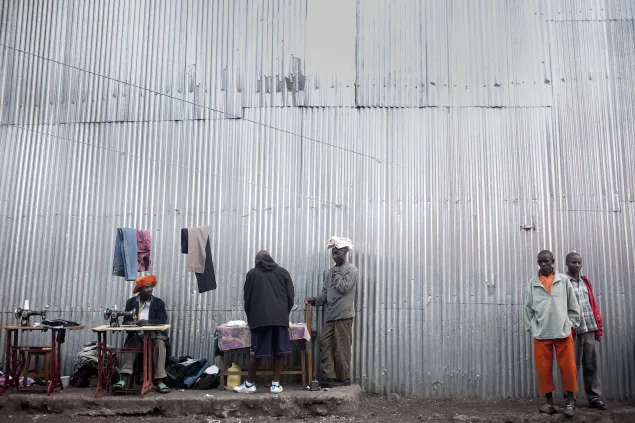
Rubavu Prison, Rwanda, 22 July 2014.
Inmates sew clothing.
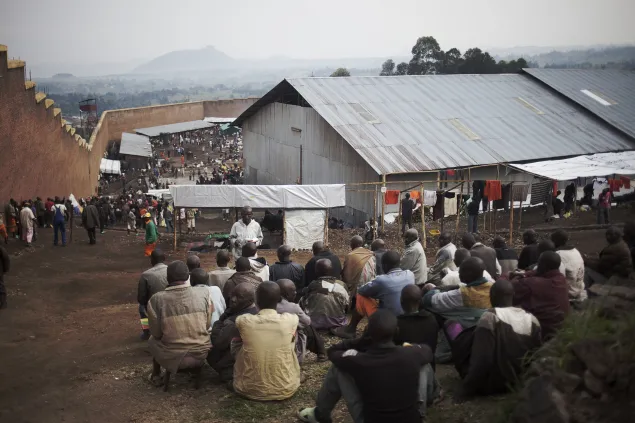
Rubavu Prison, Rwanda, 22 July 2014.
A church group meets early in the morning.
The prison, situated in the hills of Rubavu district, houses almost 4,000 male prisoners. Photojournalist Nadia Shira Cohen went to the prison with an ICRC team following what is believed to have been an electrical fire on 7 July, which killed five inmates and injured 100.
She captured the daily life of the inmates while temporary shelters were being built. The ICRC has been working with the facility since it opened in 2011, helping to develop environmentally sustainable wastewater systems, produce biogas for cooking and collect rainwater for daily use. Delegates also provide general support for the prisoners.


